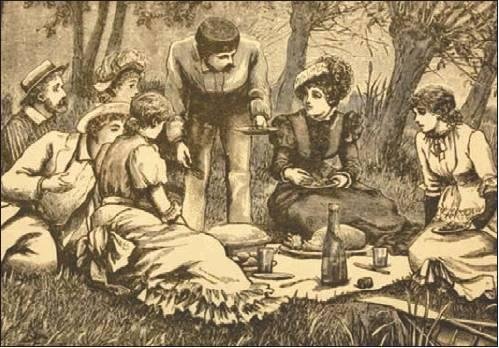Ladies and gents, mind your manners
In cleaning out my grandmother’s house, I found my great-grandmother’s white glove collection.
I smiled and then frowned.
As a 3-year-old, I hated wearing dresses and white gloves to …
This item is available in full to subscribers.
Subscribe to continue reading. Already a subscriber? Sign in
Get 50% of all subscriptions for a limited time. Subscribe today.
Please log in to continueNeed an account?
|
Ladies and gents, mind your manners
In cleaning out my grandmother’s house, I found my great-grandmother’s white glove collection.
I smiled and then frowned.
As a 3-year-old, I hated wearing dresses and white gloves to church.
Because of my total disdain for those scratchy crinoline dresses, I still refuse to wear dresses today.
My great-grandmother Eva Pearl Wessinger would not be pleased.
She was all about prim and proper dress and etiquette.
I washed the gloves with the utmost care and put them in a safe place.
Gerrwalton.com says, “A glove is an object of luxury, elegance, and refinement.”
It was a frequent fashion accessory for women and men who were part of high society.
Gloves were just a part of the complicated social rules for proper etiquette you were supposed to follow the old days.
Women in the 1800s, in no uncertain terms, could “never go out without gloves.”
They had to put them on before they left the house.
You should no more be seen pulling on your gloves in the street than tying the strings of your bonnet.
French traveler Jacques Pierre Brissot de Warnville wrote in 1788 that to his horror Virginians used their fingers or silk cravats to blow their noses.
According to John Kasson, author of the book, “Rudeness and Civility Manners in the 19th Century,” one of the faux pas in the 1700s was “to blow your nose with the same hands you use to hold the meat and spit on the table.”
Kasson even notes the proper etiquette of flatulence.
Erasmus, in the 1500s, advised, “If it possible, withdraw to another room. It should be done alone. If not, in accordance with the ancient proverb, let a cough hide the sound.”
The Wernigerode Court regulations of 1570 stated one should not relieve oneself without shame or reserve in front of ladies before the doors or windows of court chambers.”
In cities in the 1800s, it was improper behavior for women to go anywhere alone. They “needed” an escort to ensure their safety.
The proper age of the escort depended on the women’s age and marital or social status.
The women who lived in rural areas would probably scoff at these “rules.”
They could handle any intruder with a poker or a flying frying pan!
Country people had some social rules.
An 86-year-old lady told me the girls walked to school together and the boys could not mix with them.
Walter Houghton’s 1883 “American Etiquette and Rules of Politeness” detailed the rules of when and how to shoot an icy glare to someone.
He wrote, “The ‘cut’ is given by a continued stare at a person. This can only be justified at all by extraordinary and notoriously bad conduct on the part of the one ‘cut.’”
For proper social standing, one had to get rid of those unsightly black teeth. Hough-ton suggested to “pulverize equal parts of salt and cream of tartar
and mix them thoroughly.
After washing the teeth in the morning, rub them with this powder and after a few such applications the blackness will disappear.”
The 1847 book “True Politeness, A Hand-Book of Etiquette For Ladies” outlines precisely how to uphold your proper high social standing!
If newly married, do not display “conspicuous public affection.”
“If you break something at someone else’s house, ignore that you have done it.
“Never wear Mosaic gold or paste diamonds. They are representative of a mean ambition to apper what you are not.”
He wrote, “A proper lady kept her fingernails scrupulously clean and avoided the disagreeable habit of allowing them to grow to unnatural lengths.”
It apparently was not socially acceptable to laugh in the presence of company, and absolutely avoid the “horse laugh.”
The next rule will make you chuckle.
“Soup must be eaten from the side, not the point of the spoon.
“When one eats soup, be careful not to make a noise by strongly inhaling the breath. This habit is excessively vulgar.”
No slurping soup at the table in 1847.
Do not beat the “devil’s tattoo” by drumming with your fingers on a table.
Never read in an audible whisper. It disturbs those near you.
Today we seem to have moved away from etiquette, but I think we need to bring some rules back.
I’m thinking about framing my great- grandmother’s gloves in a shadow box.
It might prompt a discussion on how we need some genteel manners in today’s world.
Other items that may interest you







Comments
No comments on this item Please log in to comment by clicking here